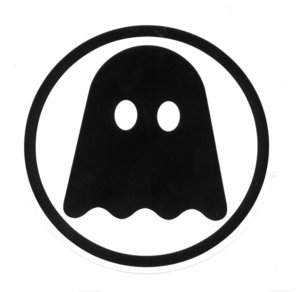Ghostly makes it easier for its artists to place music in movies, TV, commercials and more

Ghostly International
The label, founded in 1999 and with a roster of artists mostly in the electronica genre, has launched Gholicense, a music licensing service making it easier to place music by Ghostly artists in movies, commercials, television and video games.
It won’t make a bit of difference to consumers, but for the music industry it’s a something different, said Jeremy Peters, Ghostly Songs’ director of creative licensing and business affairs.
“Music publishers are sometime averse to technology—they’re very old school,” he said. “We wanted to put all our music out there to be able to be searched by everyone … not only music supervisors on large films but down to a small student filmmaker or someone who is making their first film project or making a pilot for something.”
Ghostly’s catalog has 14 years of music, about 1,500 songs by more than 40 artists, Peters said.
“Simply put - we manage the rights surrounding the songs our artists write, and help find great usages for those songs with companies who are in need of well-crafted and engaging independent music.”
Peters said it’s the ease of the interface that makes Gholicense unique.
“(With Gholicense) if you find a song and want to use it, just click ‘license,’ bring up a form, fill out the details and it will e-mail us and we will get right back to the person and figure out a deal.
“Most of the time, the artist wants to do it and we want to do it. It’s just a matter of balancing and keeping everybody happy,” he said.
The first wave of Gholicense material includes new projects from Shigeto, Mux Mool, Osborne, Ben Benjamin, Aeroc and Tim Koch.
The entire Gholicense catalog as well as the Ghostly Songs library of music, including material from the Ghostly International, Spectral Sound, Quite Scientific, Felte, and Non Projects catalogs (Matthew Dear, Tycho, Lusine, Chris Bathgate, Lightning Love, Telefon Tel Aviv, PVT and more) will eventually be searchable based on keywords and descriptions. By entering keywords such as “sad,” or “energetic,” or “laid back,” users can listen to music and make a playlist for their project. Searches can also be done by specifying beats per minute, instruments, lyrics or key.
“Ghostly’s always been a forward thinking brand, and we’re excited to use the power of technology to modernize the way filmmakers and creative people interact with our catalog,” added Peters. “Customer service tends to be thrown aside in the classic music publishing model, and that’s not how we do things. We want to get it done quickly and correctly, the first time—and to get people great music at a fair price, and this site helps do just that.”
He said there’s nothing wrong with artists making money from their work—even snippets that have been left on the cutting room floor.
“We look it as artists being able to make down-payments on houses, set money aside for retirement accounts, get married and have kids because we were able to help them support their lives by finding different ways to help them get paid for their music.
“It’s one of the ways we can support our stable of artists and keep them happy,” Peters added.


Comments
anti-thug
Sun, May 12, 2013 : 4:40 a.m.
I want this!!!
DJBudSonic
Sat, May 11, 2013 : 8:40 p.m.
I licensed 13 Ghostly tracks some years ago (2006?) for a youth traveling exhibit sponsored by the Ford Foundation. As I recall one years use of the 13 tracks cost us $3000. I only mention this as there were no dollar figures included in the story. They didn't have this then, obviously, but it was still super easy to set up and do, I even believe that Mr. Peters was the man we worked with. It must be a nice place to work if he is still there .
Detached Observer
Sat, May 11, 2013 : 2:52 p.m.
This story is just one small symptom of what's wrong with music today. There was a time when any musician would instantly lose credibility by selling music in this way, especially among the kind of young hipsters that Ghostly caters to. Am I against musicians earning a living? No, I am against hacks earning a living. The fact is, in spite of the mp3 explosion, there is way more money being spent on music today than in the 1920s-1980s. There are many more musicians earning a living today. Is the music better? Here's the problem. The supply of first-rate talent is limited. The supply of second-rate talent is endless. Today the few first-rate people are hard to find, because they are being swamped by the sheer numbers of second-rate people working in the business. If musicians and music hipsters refuse to raise their standards and police their ranks, it's up to us, the music listeners, to do it for them. Until this happens, music will remain about as cool as stamp collecting, and about as exciting. "cutting edge?" "forward thinking?" "keywords?" What a joke.
John
Sat, May 11, 2013 : 9:32 p.m.
You're right, in the 1920's the industry just stole whole genres of folk music and that was that. Oh if only we could return to the good 'ol days.
John
Sat, May 11, 2013 : 2:07 p.m.
This doesn't seem like a particularly novel technological breakthrough, but as far as copyright norms go, I think it's pretty awesome. Anything that smooths the process of finding rights-holders and licensing content legally makes a win-win for everyone.